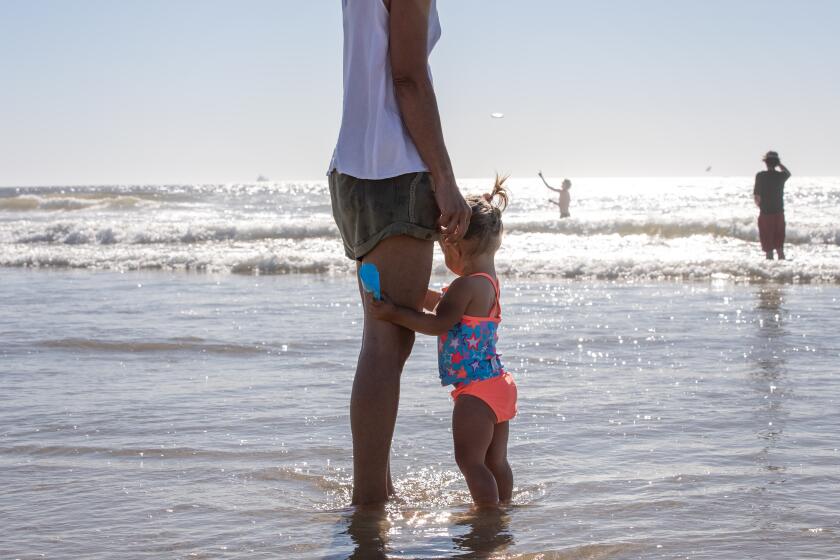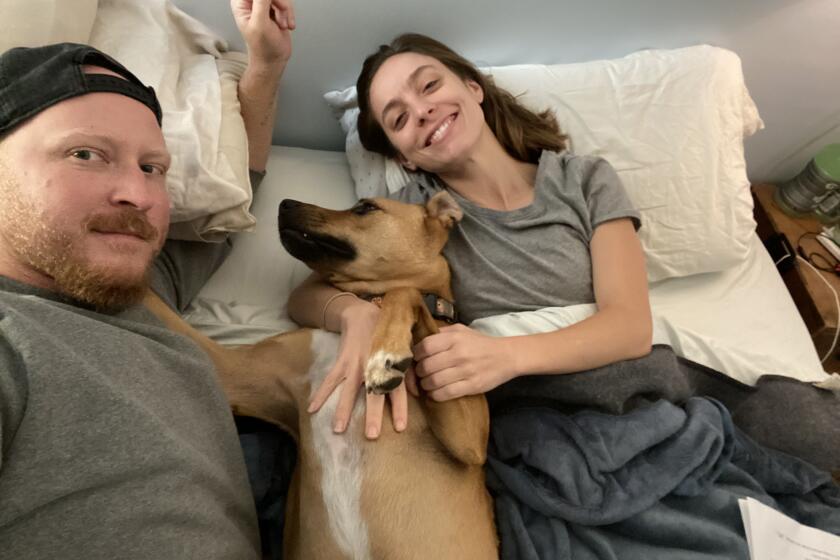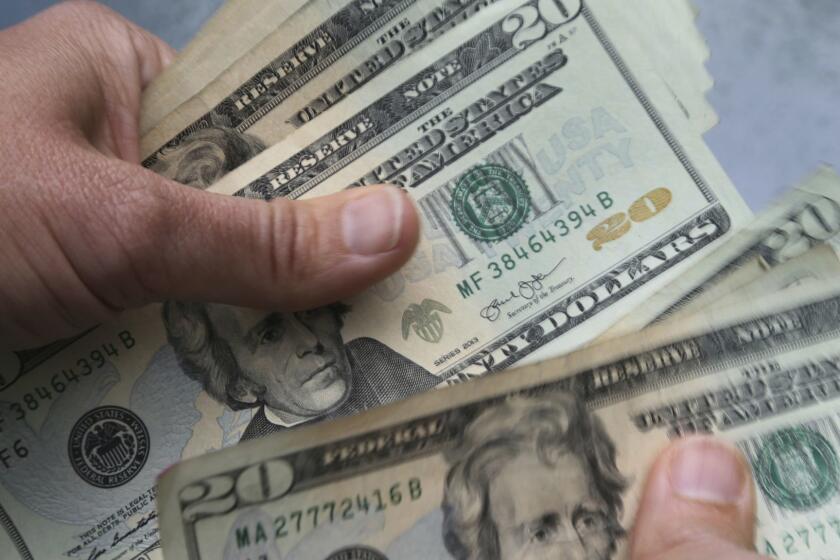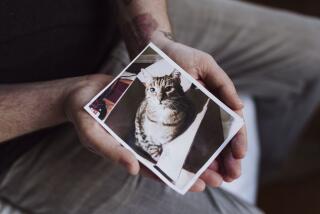They put aside millions for surrogates. Now the money has vanished, sparking an FBI inquiry

- Share via
They scrimped, and they saved. Some asked family and friends to pitch in. Others took out loans for tens of thousands of dollars.
Their goal was twofold: To raise the small fortune necessary to pay for a surrogate. And to realize a dream previously impossible — having a child of their own.
Hundreds of people across California, the U.S. and around the globe put their money, sometimes $50,000 or more, into the hands of a Texas-based escrow company so the funds could be held in trust and doled out to a surrogate for healthcare costs, insurance and compensation.
But this month, expectant parents and their surrogates learned the money they had set aside at Houston-based Surrogacy Escrow Account Management, or SEAM, is inaccessible and likely gone.
“We want answers,” said Chris Kettmann of Fair Oaks, Calif., a suburb of Sacramento. “Is there recourse to get the money back? If not, what can we do?”
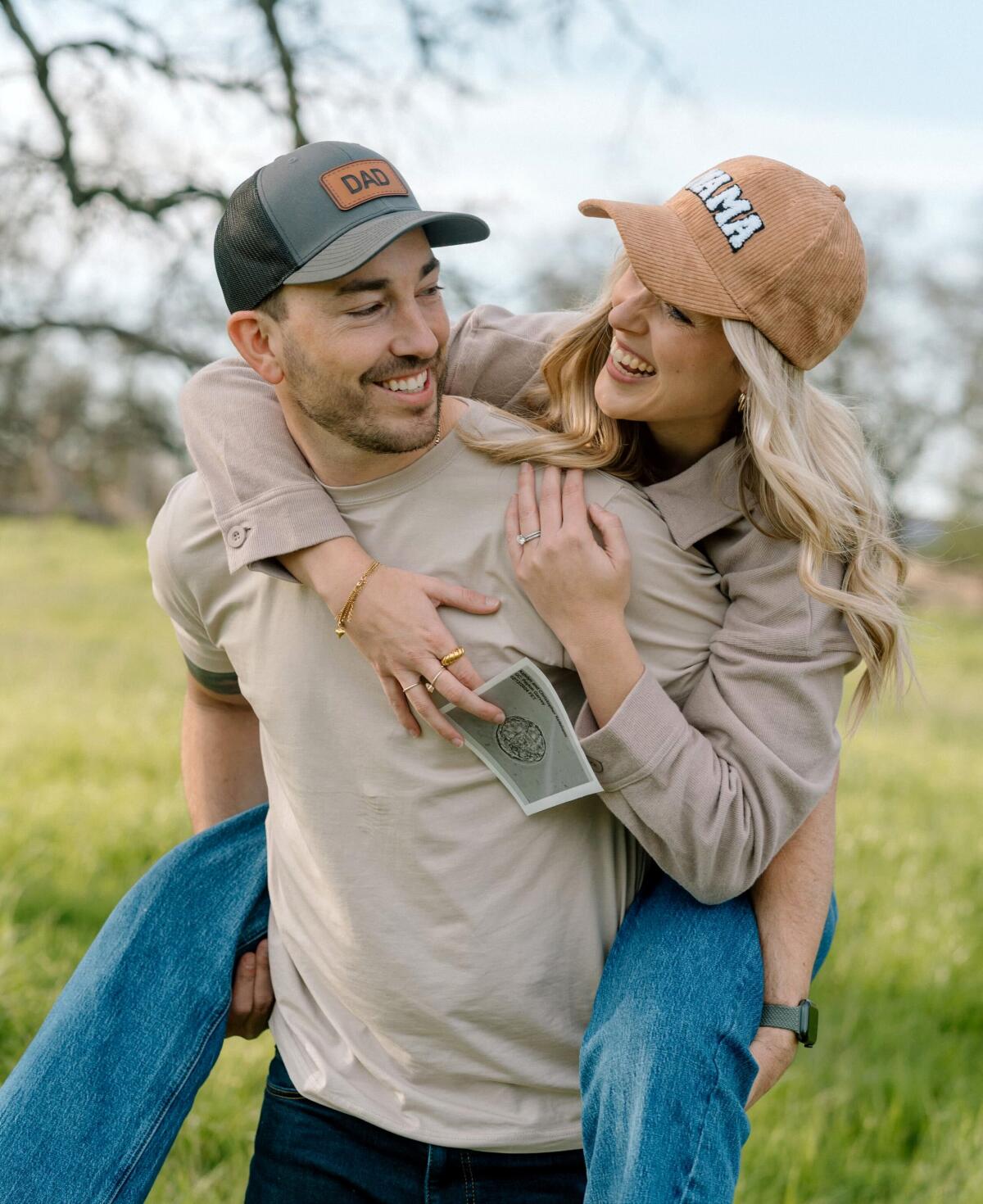
Kettmann, 33, said he and his wife had about $45,000 in their escrow account, money owed to their surrogate, who is pregnant with their baby boy and due in October. “We don’t know enough to say what happened,” he said. “We just know there’s something crazy going on.”
Police in Houston have opened a wide-reaching investigation. Christina Garza, a spokeswoman for the FBI’s Houston field office, confirmed last week that the agency also is investigating SEAM. The FBI has developed a public portal for SEAM clients to report their account information and how much money they believe they are owed. Garza, however, cautioned that the inquiry was in its early stages and said, “We’re trying to compile as much information as possible.”
A married same-sex couple in Washington, D.C., says they are out $55,000. A Los Feliz couple said they demanded their $40,111 be returned and believe it is gone. Arielle Mitton, an L.A. native who recently moved to Bellingham, Wash., can recite the amount that she and her husband are missing down to the cent: $37,721.44.
“I assumed naively that an escrow account was a safe thing,” said Mitton, whose surrogate in Indiana is pregnant with their daughter and is due to deliver on Christmas Eve.
Mitton has joined hundreds of affected parents and surrogates in a private Facebook group that has become a forum for venting, grieving, exchanging information and trying to answer the overriding questions: What happened here? And where did all their money go?
Scrutiny has centered on the sole owner of SEAM, Dominique Side, who has told customers that she had once been a surrogate. The 44-year-old billed herself as an entrepreneur of multimillion dollar businesses in the Houston area, including a vegan grocery store, a nonprofit school, a vegan music studio, and the surrogacy escrow outfit. She walked the red carpet in L.A. for vegan fashion events and ran a concierge service for those seeking a more eco-friendly lifestyle.
Lilly Frost continued her business even as several failures made clear that her plan was too good to be true. The collapse of her enterprise and its trail of heartbreak provide a look at what can go wrong in the largely unregulated surrogacy industry.
“One common thread runs through all my businesses: each is based firmly on a foundation of compassion — for others, for myself and for the planet,” she told a Houston publication in 2022.
Side did not respond to calls or written questions. Emails to Side triggered an auto-response that doubled as a press statement. Citing the “active investigation by federal authorities,” Side wrote in the email, “Under the advice of counsel, I am not permitted to respond to any inquiries regarding the investigation.”
On Thursday, Side and SEAM were hit by a lawsuit from a merchant cash-advance lender, the third such lawsuit this year. Merchant cash advance lenders provide small businesses with quick infusions of money at high fees akin to interest rates of 50% to 100%.
A judge in Texas also froze all of the company’s accounts along with Side’s other businesses after a SEAM client, Marieke Slik, sued over her “vanished” $28,000.
Calling herself a “victim of a scam,” Slik alleged that Side and her company had lured her and others “into a fiduciary relationship in order to steal their escrow funds,” according to her lawsuit, which was filed in Texas. “The Defendants have left hundreds of surrogates throughout the country — who are pregnant with a child that does not belong to them — with no way to pay for necessary prenatal care.”
Sides’ actions, according to the lawsuit, “are nothing short of evil.”
Struggling parents
Many surrogacies often involve LGBTQ+ couples who want children, or older couples for whom childbearing is no longer a viable possibility.
For others, the road to surrogacy is one of heartbreak and tragedy.
The married woman in Los Feliz said she had had multiple miscarriages. She was recently pregnant but gave birth in the second trimester. The newborn died at Cedars-Sinai in his parents’ arms.
The couple turned to surrogacy after exhausting all other options. They selected a surrogate, completed the necessary contract — which often requires using an escrow firm — and put more than $40,000 into the account, a portion of the overall cost. But their embryo had yet to be transferred into the surrogate.
“Nothing is clear,” she said, explaining that she and her husband demanded their funds weeks ago. “Obviously that fell on deaf ears — we didn’t get our money back,” she said, speaking on the condition of anonymity because their extended family remains unaware of their attempt at using a surrogate.
“I’d love to carry this child,” she said, and “not spend any money on a surrogate. There’s a level of that, where you feel so terribly sad. You feel sad about the money, but you feel sad about the situation.”
‘Something really bad has happened’
For intended parents and surrogates, trouble emerged around late May, when surrogates did not receive their usual payments.
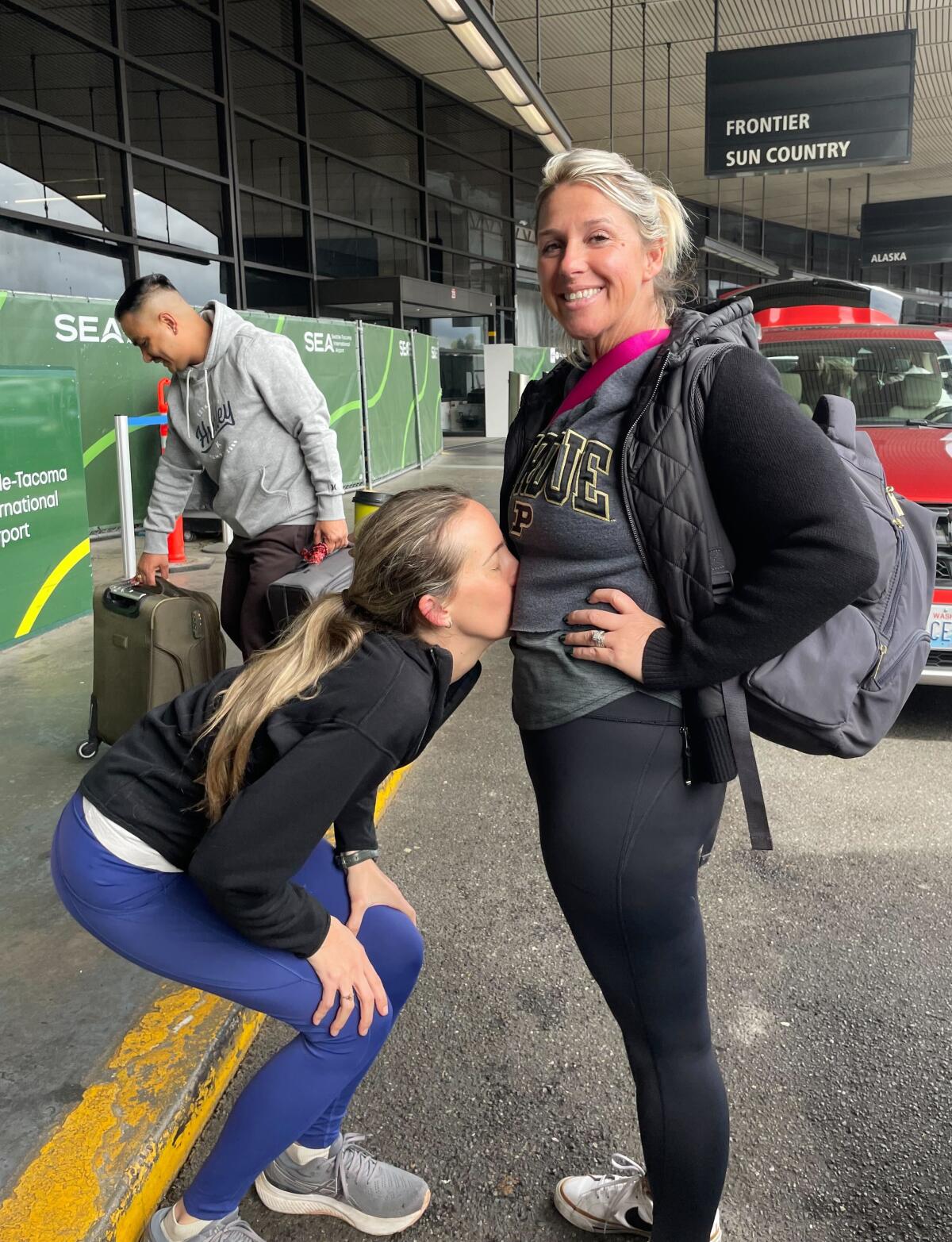
In early June, Tena Doan — a 42-year-old surrogate mother in Indiana — said she noticed her bank account balance was lower than expected and realized her monthly payment and allowance had not come through. Her surrogacy agency told her that banking issues at SEAM had delayed the arrival of the money.
“I said, ‘No problem, they’ll get it fixed,’” Doan recalled, figuring that banking issues happen. When she logged into SEAM’s portal, she saw that the money listed as due her was still there.
Then came a June 12 email from Side claiming that fraudulent charges had prompted Capitol One to freeze SEAM’s account.
“Some payments were able to go through before the accounts were frozen,” Side wrote in the email. She stated that new bank accounts were established and promised service would be restored.
A bill introduced in the California Legislature could require insurance to cover IVF, joining more than a dozen other states with fertility coverage.
Two days later, however, Side sent another email indicating that “all operations have been placed on hold” due to legal action.
Doan said that the email stopped her in her tracks.
“That’s when we were like, ‘Oh s—, this is not good. Something really bad has happened,’” Doan recalled. “From there, it’s been a whirlwind.”
Mitton — the mother of the child that Doan is carrying — was at home more than 2,000 miles west.
“The first few days, I barely slept, I was nauseous from all the emotional aspects and had vertigo,” Mitton remembered.
She contacted the FBI, Houston police, the Texas attorney general. Mitton even emailed the CEO of Capital One, questioning how the money could apparently vanish.
Both Doan and Mitton joined the Facebook group and realized they were part of a club they never wanted membership in: those affected by SEAM’s financial collapse.
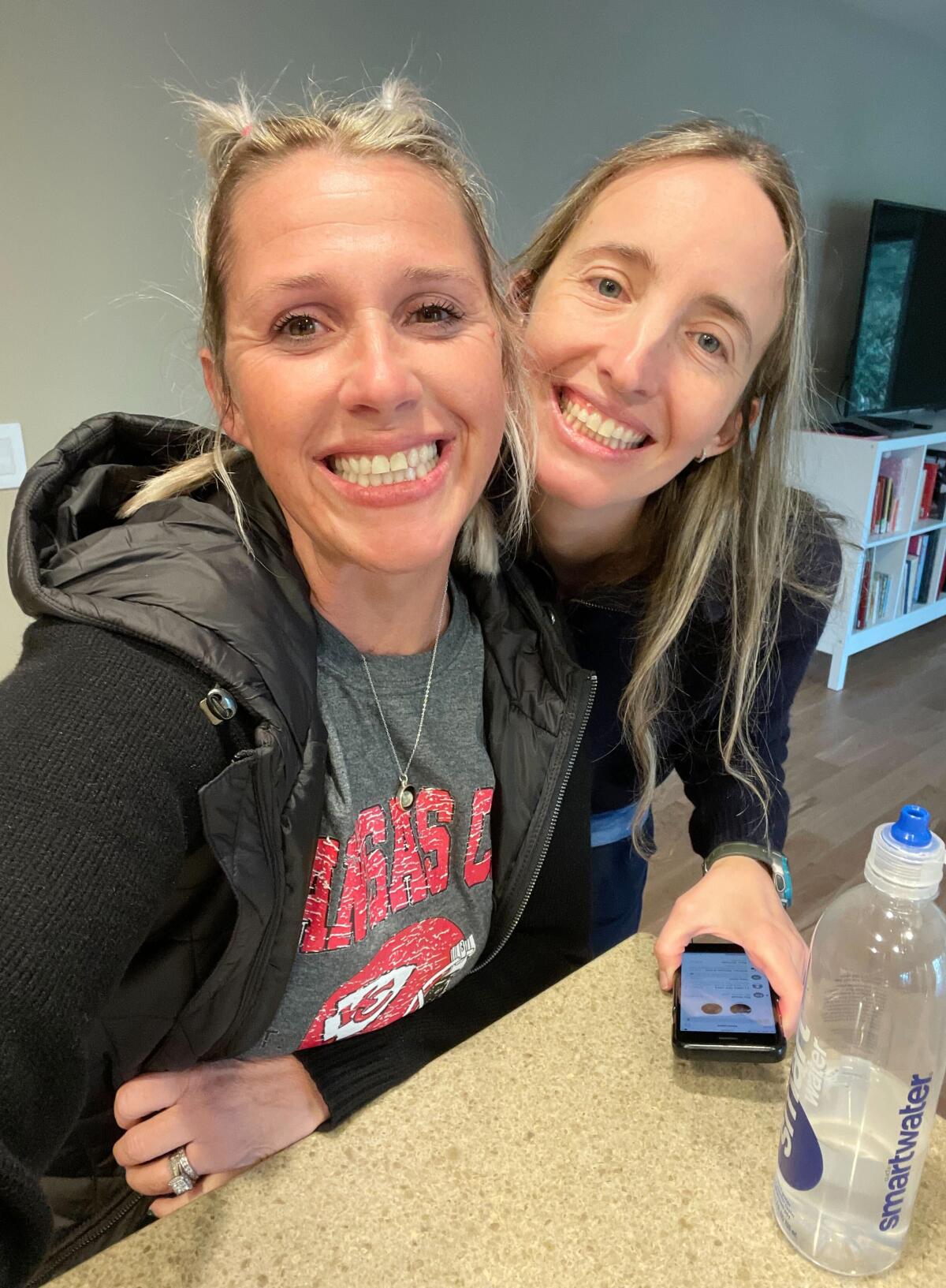
An informal poll among members suggested that about $10 million was unaccounted for. Parents and surrogates from across the country and around the world have traded information in the Facebook group about current police investigations and become sleuths themselves.
They’ve pored over Side’s various businesses — the Vgn Bae Music Studio, and Nikki Green, a luxury vegan fashion line. They’ve also mined her social media accounts.
A recent post on Side’s Instagram page VgnBaeDom, which has since been deleted, recounted her birthday week in June: Side said she flew to L.A., enjoyed a vegan dinner at the upscale Culver City vegan restaurant Shojin, dined at Crossroads Kitchen and Craig’s — both frequent celebrity hotspots — enjoyed a “full day of spa and cabana” at the Four Seasons, before doing fittings at Celine, the luxury French fashion house.
“The week this was going down was also her birthday week,” said Mitton, who recalled thinking, “She’s probably spending our escrow money there.”
Signs of financial difficulty
SEAM was first registered in Texas in 2014. Testimonials from 2017 onward show glowing reviews, and one parent told The Times he had used SEAM for their first child without issue.
Lawsuits from cash advance lenders filed against SEAM and Side in New York this year indicate mounting financial trouble in recent months.
So-called merchant cash-advance lenders send sums of money to distressed businesses, often with a rapid turnaround, and, in exchange, a business lets the lender withdraw a portion of future receipts directly from the business’ bank account to pay off the debt. Cash-advance lenders often insist they aren’t lenders and that cash advances against future revenue aren’t technically loans — but New York’s former attorney general had lambasted the industry for predatory debt-collection practices.
In January, Side received an unspecified sum from Pearl Delta Funding and agreed to pay back $69,500. But she defaulted the next month, prompting the lender to sue her in New York in March. (Pearl Delta’s attorney did not respond to an email seeking comment.)
On May 6, Side secured $650,000 from Dynasty Capital and agreed to pay $975,000, or 150% of the amount borrowed, according to court records.
Under the agreement, the lender was allowed to debit $12,500 per day from SEAM’s account until the full amount was paid back. On May 31, Dynasty Capital said in court papers, SEAM “breached the agreement” and either failed to put revenue into the business account or diverted it elsewhere, leaving Dynasty unable to recoup its money.
Dynasty Capital sued Side, SEAM and her various businesses on June 18. Dynasty’s lawyer declined to comment.
On May 29, Side obtained $100,000 from Arsenal Funding and agreed to allow Arsenal to deduct 1.25% of SEAM’s daily revenue from its business bank account until $149,000 was paid off.
Arsenal sued Side and SEAM last week after Side stopped making payments on June 21 and defaulted, according to the lawsuit filed in New York, which demands about $190,000 to cover the outstanding debt and fees.
New York state’s attorney general has opened an investigation into potential abuses by finance firms that offer quick money to small businesses nationwide, according to a person familiar with the probe.
To secure the loan from Arsenal, Side had to disclose her largest revenue sources. She listed three companies, all in Southern California: US Harvest Babies Surrogacy in the City of Industry; Mle & Mlang International Surrogacy in L.A.; and a Shady Grove Fertility office in Solana Beach.
But there is reason to doubt the accuracy of what Side told the lender. In a statement, Shady Grove said it had no financial relationship with Side or SEAM and did not refer patients to the company, explaining that “some patients may have independently engaged with SEAM.”
Further, the name that Side had listed as her contact has never been an employee of Shady Grove, according to a person familiar with the company’s operations. And the address she listed for Shady Grove is a small branch in the San Diego area that’s been open for only a few months; Shady Grove is headquartered in Maryland and has 49 locations nationwide.
Neither Harvest Babies or Mlan responded to requests for comment.
Side told Arsenal that she was the 100% owner of SEAM and projected an average monthly revenue of $2.78 million, according to a copy of the financial agreement that Arsenal included with its lawsuit.
Lori Hood, a Houston-based attorney who is representing Slik — the client who sued Side this month in Texas — said she was confounded by SEAM’s financial practices. She said the lawsuit from Dynasty Capital indicated that escrow money was used to secure the $650,000 cash payment.
“How do you put up escrow funds as collateral?” said Hood. “That’s my first indication that something’s desperately wrong. You don’t recognize escrow funds as revenue.”
Second, Hood said, SEAM’s tax records that she’s reviewed also showed revenue of “millions of dollars.”
“Did her company make millions of dollars, or is she putting into the tax returns that the escrow money was her revenue?” Hood asked.
To press their client’s lawsuit against SEAM, Hood and her law partner, Marianne Robak, petitioned a judge to freeze all of SEAM’s accounts at Capital One along with other accounts owned or controlled by Side.
“The evidence shows that SEAM’s escrow account with Capital One ... has no funds available,” notes the request for a restraining order to freeze all accounts. “SEAM is insolvent.”
In the filing, Hood also accused SEAM of diverting money into accounts in the name of Life Escrow LLC, a company registered last year to Side’s business partner, Anthony Hall, who is also a defendant in the suit filed by Slik.
Side’s “actions appear to be to avoid having to face the clients she defrauded. It appears she had absconded,” states the restraining order, which a Harris County, Texas, judge signed off on June 21.
Reached by phone on Thursday, Hall said he “had no connection with SEAM,” adding, “I wish I had answers.” Hall said he was a business partner of Side in the vegan music studio, Vgn Bae Studios, adding, “Everything was great until it wasn’t.”
Hall said he did not know if Side had an attorney and said that he was speaking only for himself.
“She’s not gonna respond,” he said of Side. “I’m defending myself. I don’t know what they have going on.”
Pregnancies don’t wait
For Hood and hundreds of surrogate mothers and parents, questions mount.
“I won’t cast blame on any of the parents. They did everything they were supposed to do,” Hood said.
Time is short, however, for ongoing pregnancies and those couples who hope to have a surrogate receive an embryo soon.
Olivia Munn plans to grow her family despite her hysterectomy and ovary removal. She had her eggs frozen before the surgery, which was part of her cancer fight.
Kettmann, from the Sacramento area, said their surrogate is 22 weeks pregnant. Of the $57,000 they put into SEAM, he said, $45,000 is missing. The rest had already been distributed to the surrogate.
“It’s a scramble,” he said. He and his wife had some money saved for additional expenses, which they’ve used to cover the June payment that never arrived from SEAM. He’s now fundraising from family and friends.
“We told her we’ll do everything we can to keep her up to date on payments,” he said, “but [we’re] asking her to be patient.”
Mitton and her surrogate, Doan, have started collecting donations through GoFundMe and plan to extend the payment terms two years, rather than having all the money sent to Doan shortly after delivery.
“I’m growing a healthy baby girl for them,” Doan said, “and that’s all that matters.”
More to Read
Sign up for Essential California
The most important California stories and recommendations in your inbox every morning.
You may occasionally receive promotional content from the Los Angeles Times.
